In this show, you will hear about Auroville, an experimental international township in the South of India. This interpersonal and intercultural experiment was founded exactly 50 years ago in 1968 by Mirra Alfassa also known as “the Mother”. At first, we will listen to Noel Parent talking about his intercultural and spiritual journey and give us some detailed impressions about life in Auroville and what he enjoys most about this magic place. Our German student Lucas Bolten, who is currently studying a semester abroad at our partner university, the Indian Institute of Technology, Madras in India, will talk about his experience as a guest visitor in Auroville. And finally, we will listen to Noel Parent talking about the educational system and the importance of “learning by doing” in Auroville.
Tag: Fachhochschule Koblenz
Erasmus +++ Student stories +++ Exchange semester impact +++ Learned skills +++ Absolutely Intercultural 222 +++
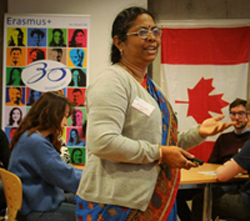 To what extent does study abroad influence students’ future life both in academic and career perspectives? Well, in this episode, which will be the last of a series on the 30th Anniversary of the ERASMUS program, we will listen to my colleague from RheinAhrCampus , who works with outgoing students, and helps them find the best partner universities for their stays abroad. She will talk about differences in students’ behaviors and appearance which she notices after they come back from their host country. We will also interview two guest lecturers from Portugal and from our partner university Indian Institution of Technology, Madras. They will talk about staying abroad and an extraordinary campus in India, and how it was first established with German aid in the 1960s. And we will hear some voices of international professionals who were once exchange students in Germany and who will tell us what skills and habits they gained during their studies at RheinAhrCampus. Finally we will listen to my co-host Anne Fox from Denmark who was in Germany and took part in our seminar Managing Cultural Diversity.
To what extent does study abroad influence students’ future life both in academic and career perspectives? Well, in this episode, which will be the last of a series on the 30th Anniversary of the ERASMUS program, we will listen to my colleague from RheinAhrCampus , who works with outgoing students, and helps them find the best partner universities for their stays abroad. She will talk about differences in students’ behaviors and appearance which she notices after they come back from their host country. We will also interview two guest lecturers from Portugal and from our partner university Indian Institution of Technology, Madras. They will talk about staying abroad and an extraordinary campus in India, and how it was first established with German aid in the 1960s. And we will hear some voices of international professionals who were once exchange students in Germany and who will tell us what skills and habits they gained during their studies at RheinAhrCampus. Finally we will listen to my co-host Anne Fox from Denmark who was in Germany and took part in our seminar Managing Cultural Diversity.
Absolutely Intercultural 221 +++ before Erasmus +++ study abroad experiences +++ stereotypes +++
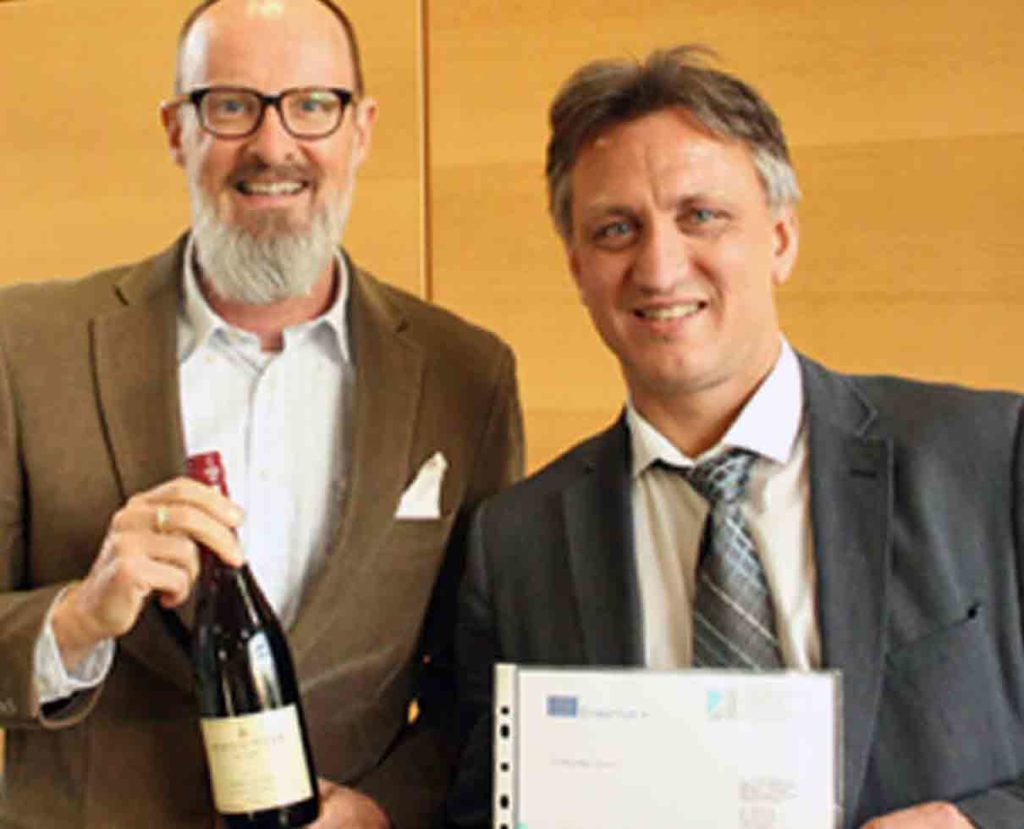
Hello and welcome to show 221 of our podcast “absolutely intercultural” which is the fourth of series of “Erasmus 30” podcasts to celebrate and highlight the 30th anniversary of the most successful of all student exchange programs. In this episode, our two lecturers will share their exchange experiences and stories about their studies abroad. How did teaching in Germany under the Erasmus mobility program benefit a lecturer’s research activities and his academic life? Then we will listen to a lecturer from RheinahrCampus, he will talk about how he studied abroad two decades ago. Was it more difficult to arrange than an exchange semester today? What were the required documents in the past and now? And finally, we will look at the differences in student lives in different countries.
refugees +++ integration +++ Denmark +++ Germany +++ Eddies +++ absolutely intercultural 196 +++
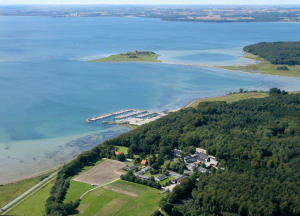 We have a new look for the website, a Facebook milestone, a webinar on culturally responsive teaching and a plea for help on the Edublog awards! We will be talking to two teachers about how they adapt to a diverse classroom.
We have a new look for the website, a Facebook milestone, a webinar on culturally responsive teaching and a plea for help on the Edublog awards! We will be talking to two teachers about how they adapt to a diverse classroom.
So we have updated the website to accommodate the new material we have on culturally responsive teaching. You can now also sign up for the Teaching Culture newsletter . Continue reading “refugees +++ integration +++ Denmark +++ Germany +++ Eddies +++ absolutely intercultural 196 +++”
absolutely intercultural 175 +++ Australia Day +++ can-do attitude +++ the lucky country +++
Please put your headphones on and listen to Show 175 from Australia! If you like the podcast then please also LIKE US ON FACEBOOK!
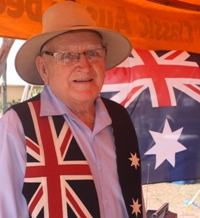 Today our show will take you to the “Lucky Country“, where the inhabitants with distinctive multicultural backgrounds have developed a positive “can-do”- attitude and try to give everybody a “fair go”.
Today our show will take you to the “Lucky Country“, where the inhabitants with distinctive multicultural backgrounds have developed a positive “can-do”- attitude and try to give everybody a “fair go”.
Listen to my interviewees in Australia. On the last weekend in January we celebrated Australia Day, and I took along the microphone to share my impressions with you.
absolutely immigrated
Let us listen to two typical Australians whose ancestors came over from Europe. I met Vivian and Wayne in Sydney Harbour over coffee and with the beautiful view on the Opera House and the Harbour Bridge and when I was conducting the interview I wished we had a video podcast so I could have shared with you a perfect hot summer morning in late December.
absolutely Aussi
Three weeks later I had left New South Wales and was back on the Sunshine Coast. Let us see whether in Queensland being Australian is also about football, meat pies, and BBQs. I asked some colleagues from the University of the Sunshine Coast how they were planning to celebrate Australia Day. Bishnu told us that when he first moved to Australia he did not really like eating lamb but now it has turned into his favourite dish. Talk about successful integration!
absolutely aboriginal
I am following up this topic of the first owners of the land and asked how the attitudes of ordinary Australians towards Aborigines and Torres Strait Islanders have changed over the years in society and in education.
absolutely multicultural
Every year the Australian of the Year is elected and this person will give important public speeches during that year. This year I was fortunate enough to be able to listen to the speech of the outgoing Australian of the Year talking about attitudes to indiginous people and to multiculturalism in general. You could really see on Ita Buttrose’s face how happy she is that her ancestors came over to Australia in the 1850ies.
absolutely original
On 26 January I visited Australia Day in Noosa, Queensland, in search of examples and explanations of the”can-do” attitude, the “fair go” and the “Lucky Country”. I did not have to search long because the first person I met, John Major, “Bush Poet” and former farmer, explained to me in his own words what these Australian concepts are all about for him.
And do not miss the brass band at the beginning and the end of that interview!
Would you like to share with us your own intercultural experience in foreign countries? If so, we would be delighted to hear both positive and negative experiences, so don´t hesitate and share your intercultural experiences with it with us on our Facebook Page.
Our next show will be coming to you on 7 March from Anne Fox in Denmark.
Until then –
Bleiben Sie absolut interkulturell!
And please visit our Facebook page.
The host of this show is: Dr. Laurent Borgmann
absolutely intercultural 171 +++ semester abroad +++ intercultural experiences +++ Germany +++ exchange student support +++
If you like the podcast then please also LIKE US ON FACEBOOK!
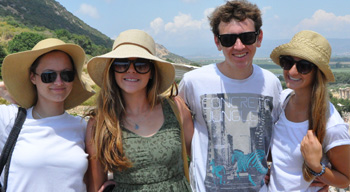 Our exchange students from Australia and Hungary have finished one year studying and doing their internships in Germany. Spending a long time far away from home – all on your own – will probably change your way of thinking and of doing things. Maybe – it will even make you cross that invisible line between being a teenager and an adult.
Our exchange students from Australia and Hungary have finished one year studying and doing their internships in Germany. Spending a long time far away from home – all on your own – will probably change your way of thinking and of doing things. Maybe – it will even make you cross that invisible line between being a teenager and an adult.
Have you ever thought about spending some time abroad in order to acquire intercultural experiences? Or are you still undecided, because you have too many worries about leaving your comfort zone and getting along in a foreign country?
You are in good company, our international exchange students, too, had many worries before they arrived at our university but they did survive their year abroad with a smile in their faces.
absolutely open-minded
During the last year our Australian exchange students collected a number of intercultural experiences in Germany and Turkey. They met many new people and made many new friends.
But before they came to Germany, they also had many worries in their heads.
I interviewed Tehlia, Matthew and Lucy – all Australian students in order to hear more about their main worries and getting some suggestions for future exchange students.
absolutely helpful
We asked ourselves what kind of help future exchange students need during the planning of their semester abroad. I interviewed Adelheid Korpp. She told us more about typical questions and worries of exchange students before they arrive in Germany.
It seems to be mostly about accommodation…
absolutely life-changing
Barbara Neukirchen, our colleague who looks after the “outgoing students” will share her impressions of how students have changed after their stay in a foreign country. I asked her how the students find out about their options for spending a year abroad.
absolutely inspired
Andreas Faulstich, lecturer at RheinAhrCampus, is going to explain in how much his year in Scotland influenced his style of teaching.
Would you like to share with us your own intercultural experiences in foreign countries? If so, we would be delighted to hear both positive and negative experiences, so don´t hesitate and share your intercultural experiences with it with us on our Facebook Page.
Our next show will be coming to you on 1st of November from Anne Fox in Denmark.
Until then –
Bleiben Sie absolut interkulturell!
And please visit our Facebook page.
The host of this show is: Dr. Laurent Borgmann
Editor: Younes Jaber
absolutely intercultural 151 +++ Australia Day 2012 +++ multilingualism +++ patriotic celebrations +++ BBQs and Barbies +++
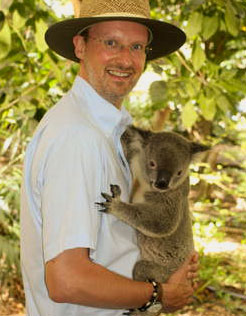
absolutely down-under
Like my last show, episode 151 also comes to you from Australia. You can listen to how I get woken up by exotic birds outside my bedroom window every morning because I thought I should record my introduction at this time of the day to share this experience with you because this has become my regular Australian alarm clock. As I live just metres from the national park I assumed they must have some kind of noisy monkeys in that park but then I discovered, it was birds, such as cockatoos, kookaburras, and some very colourful small parrots that I cannot identify. After a month in the country I finally manage to sleep through this incredible noise, and if I didn’t, I would have to get up at 4:30 every morning when this dubious concert starts. This week my class and tutorial at the University of the Sunshine Coast will not take place because of Australia Day 2012, a national public holiday. So I started asking people what this national day is all about and I received many, but sometimes contradictory answers because while this day is meant to promote and celebrate national unity it seems that every year it is accompanied by the criticism that instead of promoting multiculturalism this day commemorates the 26 January 1788 the arrival of the First Fleet at Sydney Cove where English settlers put up their flag. So opponents tend to call it “Invasion Day” and propose to change the national public holiday to another date. Let me share with you what some Australians told me about Australia Day. (If you want to find out more about Australian Identity you may want to revisit Anne’s show 76 on “mateship” and if you want to check out what my own life in Australia sounds like, check out my own last show 149.
absolutely diverse
I would like to introduce you to my neighbours here in Australia. Simone and Leonardo from Switzerland. Their background is so multicultural that it would perhaps be difficult for them to be nationalistic. I got interested when I noticed that mother and son were using several different languages even between them during an ordinary day.
Believe me I was very confused I when I saw Simone and Leonardo for the first time. From where I was sitting I thought I could distinctly hear about five or six people talking in three different languages but when I looked up I could see only two and had to realize that these two were actually using all three languages between them.
absolutely nationalistic
Australia Day is an opportunity to celebrate what is best about Australia including vegimite, BBQs, and cricket but some people are also critical of the fact that the image which is projected on this day is a very “white perspective” where the indigenous people do not really play an important role. I took my microphone into the classrooms to find out what it means to be Australian and what the day actually celebrates. Let us first listen to Mark from England and Meredith and Josh who are Australians. I also asked three international students what they knew about Australia Day and whether they could draw parallels to national or patriotic celebrations and movements in their own countries. I talked to Daniel from Sweden, Martin from the Netherlands and Clement from France.
absolutely barbie
My mate Len shares with me the secrets of the most Australian of all institutions which no Australia Day can do without. The BBQ or the “Barbie”. I had never thought about the unifying factors of this very male-dominated cooking experience. It is true that every house I have seen so far had a fixed BBQ and there are even public BBQ places in every scenic spot on the coast so that families can have an outdoor experience and bring their own food and drink.
Our next show will be coming to you from Anne Fox in Denmark on 2 March
Until then –
Bleiben Sie absolut interkulturell!
The host of this show is: Dr. Laurent Borgmann
![]() Download
Download
absolutely intercultural 149 +++ Queen and Obama in Australia +++ Day in the life of Laurence +++ Master in International Marketing +++ EXlites solar lighting +++ stereotypes French-German +++
 Hello Mates and G’day, this is show 149 of our podcast absolutely intercultural. And it is coming to you all the way from down-under, Queensland, Australia where I am teaching and doing some research for one semester. Two months ago, in October 2011, the Queen of England visited Australia. Only a month later, in November by the President of the United States came to Australia, too. And now, in December I started my summer term as a visiting academic at the University of the Sunshine coast (LOL). So who am I? My name is Elmar-Laurent Borgmann and after all these important state visits which were widely reported about in the Australian media I would today prefer to concentrate on more mundane, everyday aspects of life in Australia as experienced by a European. And yet, I hope we will be able to surprise you with some stimulating intercultural findings. Our interviewees today are from France, from Germany, and of course from Australia.
Hello Mates and G’day, this is show 149 of our podcast absolutely intercultural. And it is coming to you all the way from down-under, Queensland, Australia where I am teaching and doing some research for one semester. Two months ago, in October 2011, the Queen of England visited Australia. Only a month later, in November by the President of the United States came to Australia, too. And now, in December I started my summer term as a visiting academic at the University of the Sunshine coast (LOL). So who am I? My name is Elmar-Laurent Borgmann and after all these important state visits which were widely reported about in the Australian media I would today prefer to concentrate on more mundane, everyday aspects of life in Australia as experienced by a European. And yet, I hope we will be able to surprise you with some stimulating intercultural findings. Our interviewees today are from France, from Germany, and of course from Australia.
absolutely down-under
Let us look at an ordinary day in Australia. Some people back in Europe listened to my absolutely down-under reports during my last stay in Australia. They had heard about a “Tropical Christmas by the Pool” or a “National Australia Day” which I described both in previous shows and learned a lot about intercultural differences. However, some of them asked me to concentrate more on a the normal, regular, everyday life in Queensland. And they are right – we do expect holidays and celebrations to be different in different countries – but how about a regular university day? Hmm, what a challenge. I had thought this was too boring to record but maybe not? So, I followed myself with the microphone and recorded my intercultural impressions one morning from getting up at 7 o’ clock until I arrived at the University of the Sunshine Coast at 9. You will notice from my comments how much I like this part of the world – except for the first minutes after waking up – I admit, I am not a morning person. In the podcast you catch me waking up with my windows wide open to the tropical forest. In a second part later in the show I continue my intercultural report about a regular Australian morning going to work on the Sunshine Coast in my car. I would like to share some thoughts about beautiful landscapes but also of rather masculine-looking cars and trucks in this country before I arrive at the University of the Sunshine Coast where finally I see some wild kangaroos, not on a road sign but in real life and much closer than I expected …
absolutely business-like
I will also take you into the university, where international students from Europe will describe how in their International Marketing Class they did some work for an Australian Business. The round-table discussion was recorde after an exam situation a couple of weeks ago right at the start of the summer semester 2011/2012. To me summer 2011/2012 still sounds rather weird as in Europe only winter semesters could span two calendar years. So this is just another reminder that we are in the southern hemisphere. But back to the classroom. I was invited to sit in on the exams of students on the Master of International Business program. Apart from myself as external examiner, there was of course Dr. Leone Cameron, the regular lecturer but also, Mike Arieni, Managing Director of EXlites, a regional business for whom the group of international students had done some research about solar Energy in Europe. I asked the group how this combination of international students, an interculturally trained lecturer and a local business person enhanced their academic progress. Leone’s Master course the students had the chance to get in touch with a real business man and help him prepare his business plan for entering the European Market. Just like Mike, I, too, was impressed by the depth of the students’ research and I had a feeling that Mike took very good notice of the opportunities and challenges that the students presented for the different European countries. In a second part we will also hear from Waldemar Schneider and Clément Slastan about some of the stereotypes the international students confirmed when they lived together in shared apartments. Clément seems to have noticed a certain “lack of flexibility” in the Germans.
Once you have heard the show, please go to our “write us an email“-button in the right margin and tell us whether you liked these slightly unusual intimate insights into my own life down-under and whether you would like to get more such personal reports.
Our next show will be coming to you from Anne Fox in Denmark on 6 January.
Until then –
Bleiben Sie absolut interkulturell!
The host of this show is: Dr. Laurent Borgmann
absolutely intercultural 137 +++ National Youth Orchestra Of Iraq +++ Marketing Project +++ New European Mobility Law +++
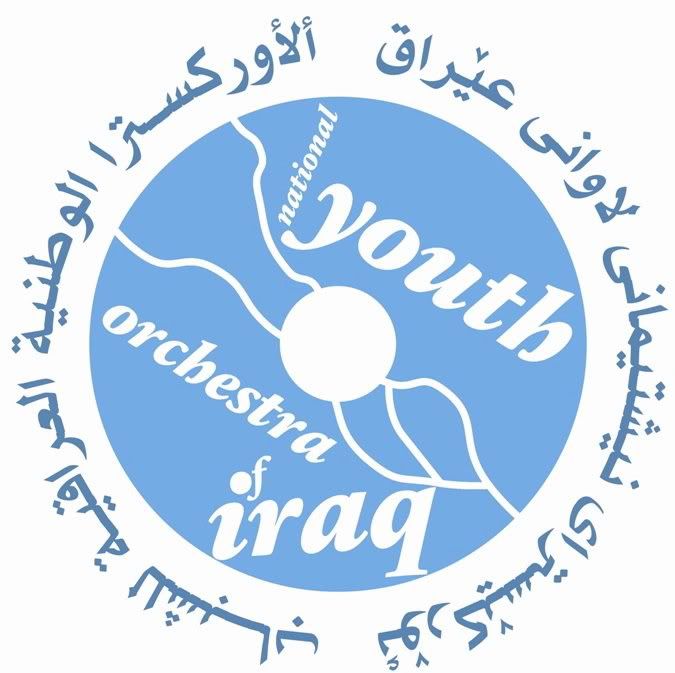
“The National Youth Orchestra of Iraq” is an inspiring project led by musical director Paul MacAlindin which is going to play in Bonn, Germany, on 1 October in the context of the Beethovenfest. In show 135 I interviewed Paul about the project itself. Now I am talking to some of the supporters of his project. On the one hand there is Prof. Karin Wolf, who plays the violin and is helping the players to improve and on the other hand there are two students from RheinAhrCampus who are also playing their role in the project.
absolutely open
Karin Wolf, a professor of viola, will share her experiences with us. She tried to collect musical instruments for the orchestra. Karin asked at her school whether people would have instruments which are no longer used and which could be donated to this international project. Furthermore she supported Paul and now she is helping the viola players to improve. In this interview she will share her motivation with us and the reasons why she is taking part in the project.
absolutely professional (part I)
Lucy Warren, our committed exchange student from Australia and co-worker in the International Office, will interview Nadya Kokareva from Russia. They are both involved in the “National Youth Orchestra Of Iraq” project. Nadya is also a participant of the university course “International Business Simulations” at RheinAhrCampus. Nadya will tell us in a first part how quickly her university course and the simulated company turned into a realistic one with a customer, what the students are doing for this customer and how they support the “National Youth Orchestra of Iraq”.
absolutely political
I would like to share a commentary given by one of my university colleagues about a political change which has affected Europe during the last few months. Two students from RheinAhrCampus, Marc Friedrich and Andrea Edel, interviewed Heinz Schaumann a university lecturer and expert in European institutions and law. Marc asked about the newest political developments in Europe; the recent changes in mobility law which were widely discussed in Germany. The countries in Europe have gradually opened their borders to the labor market. Especially those countries which followed the 2-3-2 rule are now the focus of European attention. This rule was made to somehow protect the labor markets of Western European countries for 7 years from workers migrating from East to West. Heinz Schaumann is in a very good position to give us a report about what happened and about the future prospects, for example the advantages and disadvantages for the “old” countries of the European Union.
absolutely professional (part II)
The Arabic and Kurdish players of the orchestra will leave their country in September, albeit, only for a short period of time and will travel to Germany. They will have to abandon their intercultural comfort zones by leaving their home country and coming to a foreign country with a very different culture, to play music in a multi-ethnic orchestra. In our last category Nadya tells us in the second part of the interview what specific role she held in the project and in the simulated company and what YOU, the audience, could do, to support the Orchestra, too! If you are interested in the way the exchange students are involved in the project, you can also follow them on their blog.
Ways to support “The National Youth Orchestra of Iraq”:
YOUTUBE: 1. NYOI plays for kids, 2. General Information, 3. KICKSTARTER
FACEBOOK: 1. German, 2. International
We hope we can motivate some of you to help support the “Youth Orchestra” with their project and their trip to Europe!
Breaking News: Saudi Arabian women want to be allowed to drive on their own! You can get to know something about their situation on Youtube and on their blog! Enjoy!
Our next show will be coming to you from Anne Fox in Denmark on 24 June
Until then –
Bleiben Sie absolut interkulturell!
The host of this show is: Dr. Laurent Borgmann
Editor: Markus Scherer
absolutely intercultural 131 +++ changing perspectives +++ annoying behaviour in class +++ hospitality club +++ freezing in Australia +++
 Why do different people have different perspectives? How can the same person have different perspectives on traffic only because one time the person experiences it in the car and the next day on a bicycle? How do our perspectives on events change over time. How big is the cultural influence on our perspective? And how does our perspecive change when we move to another culture?
Why do different people have different perspectives? How can the same person have different perspectives on traffic only because one time the person experiences it in the car and the next day on a bicycle? How do our perspectives on events change over time. How big is the cultural influence on our perspective? And how does our perspecive change when we move to another culture?
absolutely changed
All of us have different perspectives on the everyday things that surround us, we watch news on television, hear stories and we think we are perfectly informed about everything. But are we really? Sometimes a trip to another country or a new episode in our lives can change our perspective on the World dramatically.
Take Paul MacAlindin for example. He moved from small-town Scotland to big-town Germany and this move changed his geographical perspective to one which for Continental Europeans seems very normal.
absolutely irritating
Emese Bognar an exchange student from Hungary, vividly illustrates different perspectives and changing perspectives when she told me what irritated her when she attended a lecture and how her perspective on traffic changed, when she did her driving license.
absolutely hospitable
Agnes Dus from Hungary interviewed Adelheid Korpp, who had tried the “hospitality club”, which is a clever system for travelers to get cheap accommodation. The traveler applies for accommodation to a host, contacts the host and asks if they can stay for 1 or 2 nights. This seems to be a pleasant way for travelers to get around and have a cheap bed for the night. However, more importantly, this could be a good way to change your perspective from that of a regular tourist to that of a dear friend invited to the country. But let us listen to Adelheid how this works in detail, because first of all you need to get approved.
absolutely freezing
In our fourth and last category Roman told me about his time in Australia; he spent a semester at the University of the Sunshine Coast in Queensland and we now really have to change our perspectives here, because he is telling us that in the middle of the Australian summer you can still feel pretty cold, but listen to him yourself.
Our next show will be coming to you from Anne Fox in Denmark on 01 April
Until then –
Bleiben Sie absolut interkulturell!
The host of this show is: Dr. Laurent Borgmann
Editor: Dino Nogarole

